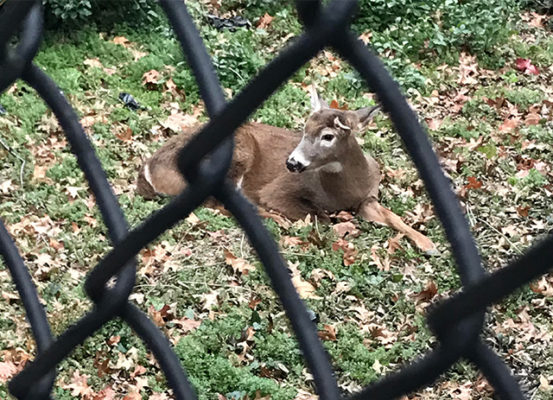
A wildlife infestation during fall and winter periods can be a difficult task to deal with.
A vast majority of people think that during fall and winter, the rate of wildlife infestation would decrease due to a limited supply of food and water, but it is not always like that.
Once the cold season arrives, wildlife around your home will be searching for three basic things: constant food, a source of water, and warm shelter.
Our homes are prime real-estate for critters to hide out in the fall and winter seasons. Attics, basements, and chimneys all provide constant heat and shelter from their predators.
Some of these furry creatures may look cute and innocent, but if left unchecked, they can cause intense problems for your home. As a homeowner or property owner, it is important to learn about some of this wildlife, how to best protect your home from them, and to find help if you realize they have invaded your property.
The most common home invaders during the fall and winter season include:
- Raccoons
- Skunks
- Rats
- Snakes
- Squirrels
- Opossums
- Bats
- Deer
Signs of a Wildlife Infestation
The common signs homeowners need to look for include:
- Scratching noises coming from your chimney, walls, attic, and basement
- Tipped over or destroyed garbage cans and bags (raccoons are a big problem when it comes to this)
- Gnawing marks around walls, electrical wiring, plumbing, and air conditioning wiring
- Lingering foul smell around your home as a result of urine or droppings
If you notice any of these signs, you are sure to have some critters lingering in and around your home. Take swift action immediately to avoid long-lasting or even permanent damage from occurring.
How To Prevent a Wildlife Infestation
Most homeowners think that if they do not see the animals, they do not have a problem. The truth is that many of these animals are nocturnal and come out to find food while we are asleep. Taking simple precautions can go a long way in preventing a possible infestation. Here are some ways you can prevent an infestation this fall and winter
- Secure trash containers: Raccoons will eat just about anything found in your trash cans. They are relentless creatures and will come over again if you do not take care of the problem. A good way to start would be replacing your open lid curbside trash container with a closed one. Properly secure trash bags before disposing of them and avoid overfilling containers.
- Close up access points: Rats, mice, and squirrels are small enough to pass through 1-inch openings in your walls, slides, vents, and doors. Minor repairs like caulking these openings can help avoid infestations.
- Proper landscaping: Maintaining proper landscaping is a good way to deter wildlife from invading your home. Prune shrubs to keep them from overgrowing, mow overgrown lawns, and trim tree branches that hang over your roof as raccoons, rats, and squirrels can use them to gain access to your house.
- Dispose of food properly: Food left outdoors is an invitation for wildlife to come into your house. Properly dispose of leftovers as well as uneaten pet food. Pick up fallen fruits and seeds that may attract these creatures. Secure all food by placing them in tightly sealed containers.
- Install a fence: You can protect your garden by installing fences designed to keep animals out. The harder you make it for pests to have access to your property, the less likely they are to bother you.
If these creatures are still persistent, you should involve your local wildlife removal company to help. They have well-trained professionals and proper equipment to take care of wildlife infestations efficiently.
Become a Harlem Insider!
By submitting this form, you are consenting to receive marketing emails from: Harlem World Magazine, 2521 1/2 west 42nd street, Los Angeles, CA, 90008, https://www.harlemworldmagazine.com. You can revoke your consent to receive emails at any time by using the SafeUnsubscribe® link, found at the bottom of every email. Emails are serviced by Constant Contact








